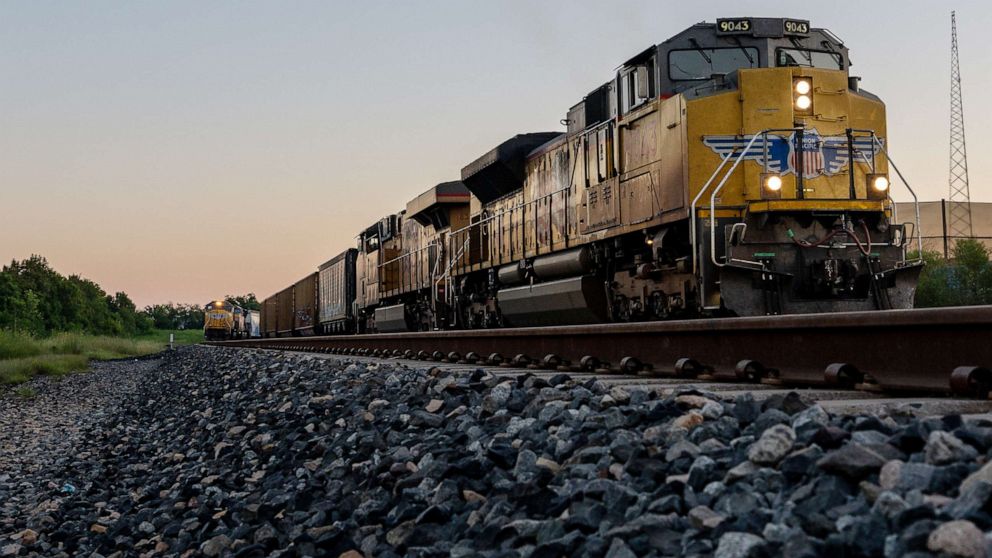
Oklahoma U.S. Rep. Stephanie Bice has her eye on the possibility of a nationwide rail strike, putting some of the blame on President Biden’s anti-fossil fuel policies.
In a column this week, the 5th District Rep. said she is concerned about further concessions to the unions and the crushing effect of a rail strike. She also suggested it is Biden’s energy policies that have put the nation in danger of such a strike.
“Once again, an all-of-the-above energy approach could have curtailed some of the disruptive effects of a railroad strike,” said the Republican Congresswoman.
“President Biden didn’t prioritize pipelines, instead moving oil and natural gas by rail and fright, which is less safe and less cost effective, and now we are facing the consequences.”

Rep. Bice said because of the nation’s dependence on rail transport, a stoppage would create severe stress on other modes of moving fuel and exacerbate the shortages faced by the nation.
Below is Rep. Bice’s statement:
Our already struggling economy may face more challenges this holiday season due to a potential railroad strike. As you may know, in September, freight rail companies and unions formed a deal with the help of the Biden Administration. The deal then went to the unions’ membership for negotiations, which has been going on for the last three months. Recently, The International Association of Sheet Metal, Air, Rail and Transportation Workers, which represents about 30% of the freight rail workforce rejected the latest agreement. This means if another deal can’t be formed, our nation will see a shutdown of the freight rail network in early December, when the unions’ cooling period ends. President Biden has given the unions much of what they asked for, and I am deeply concerned by further concessions to the unions as well as the crushing effects of a rail strike on supply chains and prices for businesses and consumers.
Our entire supply chain and economy are dependent on efficient transportation. A rail traffic stoppage would affect nearly 30% of U.S. freight, further fuel sky-high inflation, and cost the American economy as much as $2 billion per day by disrupting transportation effecting our energy, agriculture, manufacturing, healthcare, and retail sectors. A rail strike has burdensome impacts on businesses across the nation, which then trickles down to the consumer. Americans could see even higher gas prices and more shortages at grocery stores this holiday season. Additionally, a stoppage will no doubt worsen our economy, making life even more unaffordable for the everyday American.
Once again, an all-of-the-above energy approach could have curtailed some of the disruptive effects of a railroad strike. President Biden didn’t prioritize pipelines, instead moving oil and natural gas by rail and fright, which is less safe and less cost effective, and now we are facing the consequences. Due to our dependence on rail transport, a stoppage would create severe stress on the other modes of moving the fuel and exacerbate the shortages we’re already facing today. I also don’t find it a coincidence that the Administration and unions decided to push negotiations until after the midterm election.
This week, President Biden asked Congress to send him a bill to avert a railroad strike. Congress has only involved itself in a rail strike once before in 1922 when a union launched a three-day strike shutting down the nation’s railroads. Congress quickly passed a bill to bar strikes and the dispute was resolved. As of writing this, I have yet to see final legislation in the House of Representatives. I understand the critical impacts that a rail strike will have on our economy and businesses, and I will continue to monitor the progress of the ongoing freight rail negotiations and any legislation. As always, I strive to serve with the priorities and best interest of Oklahoma’s Fifth District.





